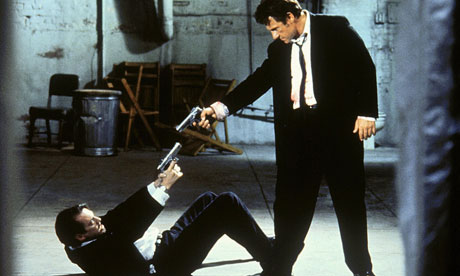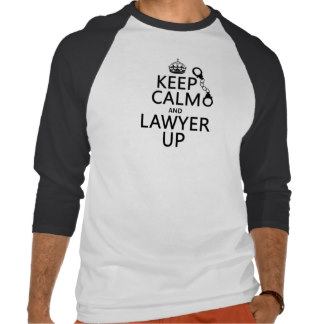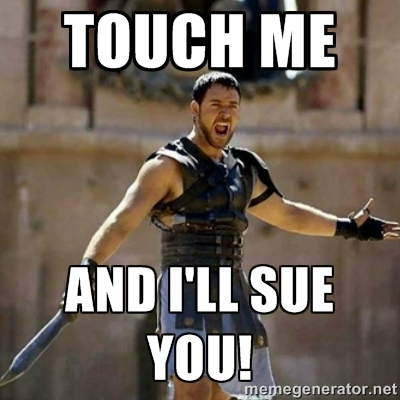We’ve all heard dogs referenced as “man’s best friend.” Many of us would agree with that label. But what happens when you run into the outlier? What if you, your loved one or even your own dog were attacked by a ferocious animal?
Our members commonly call in asking if and when Pennsylvania law allows a person to shoot an attacking animal. These are not individuals looking to kill an animal for any old reason. Rather, these are many times animal-lovers who have unfortunately been attacked while walking their own pets.
 Sometimes walking the dog can pose a severe threat of danger at the hands of other human beings. This is no joke. Undoubtedly there are individuals who will taunt LAGOs as “paranoid” for being prepared for the worst while walking the dog. But earlier this year in Pennsylvania, we all witnessed a man shot to death while walking his dog. The 51 year-old dad was ambushed by three teens. They shot him to death while he begged for his life. He had told his young daughter, who usually walked with him, to stay home that night. When his body was found, his dog sat by his fallen master’s side, whimpering and distraught.
Sometimes walking the dog can pose a severe threat of danger at the hands of other human beings. This is no joke. Undoubtedly there are individuals who will taunt LAGOs as “paranoid” for being prepared for the worst while walking the dog. But earlier this year in Pennsylvania, we all witnessed a man shot to death while walking his dog. The 51 year-old dad was ambushed by three teens. They shot him to death while he begged for his life. He had told his young daughter, who usually walked with him, to stay home that night. When his body was found, his dog sat by his fallen master’s side, whimpering and distraught.
For a live discussion about the basic principles of the justified use of deadly force, join us at a U.S. Law Shield Seminar.
At Penn LAGO, we’ve previously covered situations in which deadly force is justified to protect against attacks by human beings [see Justified, Justified II, Justified III].
But we’ve never covered what the law says about attacks by dangerous animals.
Chapter Five of the Pennsylvania Crimes Code addresses the justified use of deadly force in the common context among human beings. But there is no general “defense against animals” statute in Pennsylvania.
Remember that a justification is your legal excuse. You’re saying “Yes, I did something that is generally a crime. BUT, the law recognizes this reason why I did it.”
In order for a justification to even come into play, we must first discuss what kind of crime one could even potentially face for killing an animal.
Homicide charges do not come into play when deadly force is used against an animal. One of the basic requirements of charges such as murder and manslaughter is that the victim be a human being. As a result, a person cannot be convicted of “murdering” an animal, even if it involves a pet that we consider a beloved member of the family.
Pennsylvania law does provide safeguards against cruelty to animals in Section 5533 of the Crimes Code. Specifically, Section 5533 makes it a misdemeanor of the second degree to willfully and maliciously kill, maim or disfigure any domestic animal of another person or any domestic fowl of another person.
This statute is one of the main sources of criminal implications associated with using deadly force against animals. But this crime only applies if the killing was done willfully and maliciously. Ostensibly, a killing carried out in a purely defensive matter would not fall into this category. Furthermore, this law provides a specific exception to those using deadly force in a protective manner. Section 5533 specifically does not apply to “the killing of any animal taken or found in the act of actually destroying any domestic animal or domestic fowl . . . .” As a result, one who kills another animal to protect his own animals will not face criminal penalties.
While this particular statute deals with animals in a broad sense, Pennsylvania law specifically addresses the protective use of deadly force against dangerous dogs.
Under 3 Pa.C.S. § 459-501, a person may kill any dog that is:
- pursuing, wounding or killing any domestic animal
- wounding or killing other dogs, cats or household pets; or
- pursuing, wounding or attacking a human being.
Some members ask whether this only applies to strays. Frankly, the answer is “no.” The law specifies that it applies regardless of whether a dog is wearing tags. While it would be unfortunate to be put in the position of killing someone’s pet, sometimes we are faced with some difficult decisions in choosing to protect ourselves and our loved ones.
So let’s say Larry the Law-Abiding Gun Owner (LAGO) is walking his dog Louie one night. All of a sudden, a neighborhood dog named Vicious starts to approach them. Vicious has caused problems in the neighborhood before. He continues to approach Larry and Louie as he’s snarling, growling and barking. Hand on his holstered firearm, Larry stands in front of Louie and starts to yell at Vicious, trying to get Vicious to run away. Instead, Vicious snaps and starts sprinting toward Larry and Louie. Before Larry can draw his firearm, Vicious leaps up and bites Larry’s arm. Larry is finally able to pull his gun and shoots Vicious dead. Larry and Louie are shaken up.
First of all, if Larry is approached by law enforcement to make a statement, what should Larry do?
That’s right, LAWYER UP & SHUT UP.
Larry is in no shape to be giving an accurate, coherent statement. Further, Larry is in no shape to protect his rights. The law is on Larry’s side! The last thing he needs to do is paint himself into a corner by talking under the stress of the situation.
Suppose Vicious’ owner, Chris the Criminal comes on out in the midst of this situation. He tells Larry “You killed my best friend! I’m gonna sue you!”
Can Chris sue Larry for killing Vicious? Of course he can. This is America, and anybody can sue anybody for anything. A man once sued Anheuser-Busch because contrary to the Budweiser commercials, drinking the beer does not make fantasies come to life.
But could Chris the Criminal win a lawsuit against Larry under these circumstances?
The statute dealing with dangerous dogs specifically relieves one from liability in these situations, reading “[t]here shall be no liability on such persons in damages or otherwise for such killing.” 3 Pa.C.S. § 459-501 [for more on civil suits, see Justified IV]. In other words, this law provides both criminal and civil protections. After all, use of deadly force in these situations is protective and defensive in nature.
The law recognizes this, and in turn, does not impose criminal penalties or civil liability upon those who use deadly force against dogs who are, once again:
- pursuing, wounding or killing any domestic animal
- wounding or killing other dogs, cats or household pets; or
- pursuing, wounding or attacking a human being.

Retrieved from http://il1.picdn.net/shutterstock/videos/7761688/thumb/7.jpg?i10c=img.resize(height:160) on 10/6/2015.
One of the most heart-wrenching and frustrating scenarios involves protection of your animals from other persons. Let’s say Chris the Criminal comes out and begins to freak out when he sees that Vicious is dead. Suppose he comes over and tries to kick Louie.
Is this a defense of others scenario? Unfortunately not. Defense of others deals specifically with the defense of other human beings. Under Pennsylvania law, dogs are considered personal property. Daughen v. Fox, 539 A.2d 858, 864 (Pa. Super. 1988). Although the use of physical force could be justified under such circumstances, deadly force would not be justified in protecting one’s personal tangible property.

Photo from Reservoir Dogs retrieved from http://static.guim.co.uk/sys-images/Guardian/Pix/pictures/2013/2/22/1361534915484/RESERVOIR-DOGS-008.jpg on 10/6/015.
An even trickier situation arises if Chris pulls out a gun. [There have been real-life examples of this kind of scenario.] Larry shoots Vicious to protect himself and/or to protect Louie. Chris gets mad and pulls a gun, and points it at Louie. He rants about how unfair the world is and how “an eye for an eye” is the only way to even the score. Now the two stand opposite one another, Chris with his gun pointed at Louie. Larry is in a tough legal position. Remember, “defense of others” laws do not apply in protection of animals, and only force ―not deadly force― is justified in protection of personal tangible property. In order for deadly force to be justified, Larry must have a reasonable belief that deadly force is necessary to prevent Chris from killing him or seriously injuring him. With Chris’s gun pointed at Louie, and not at Larry, it will be much more difficult to establish that deadly force was necessary to prevent Larry’s death or serious bodily injury. Even in the most generous light, it is not as clear-cut as if Chris pointed the gun at Larry or in his general direction. Ultimately, it will come down to whether the trier of fact (usually a jury) determines that under the totality of the circumstances, Larry had that reasonable belief. Again, if Larry ultimately must use his firearm to defend himself, he must LAWYER UP & SHUT UP. Making a statement under the stress of such a situation is a great way to flush a justification down the drain.

Retrieved from http://rlv.zcache.com/keep_calm_and_lawyer_up_any_color_tshirt-rd1a75862d23340acbfc47be8c0b6083b_iq3h5_324.jpg on 10/6/2015.
It’s worth noting that some local governments do have ordinances preventing the discharge of firearms. We maintain that these ordinances are illegal and invalid. But that won’t necessarily stop local governments from making efforts to enforce them. We are currently challenging Harrisburg’s unqualified discharge ordinance in court.
In a defensive situation, a shooter would have a number of affirmative defenses to the discharge ordinance in his or her favor. But remember, an affirmative defense is your legal excuse. You must raise your legal excuse in order to be entitled to it. This is much different than a bar to prosecution, where certain circumstances prevent the government from charging you with a crime. So for now, beware of the headaches that may flow from discharge ordinances.
That being said, it is incredibly important to always be responsible when using a firearm for any purpose. Remember the Fourth Commandment of Shooting Safety: Be sure of your target and what’s beyond it.
So to sum it up, the law does provide some protections against attacking dogs. Specifically, protections exist for the use of deadly force against other dogs who are harming (or about to harm) a pet, or harming (or about to harm) a person. When it comes to protecting our own dogs from another person, we must remember that legally speaking, dogs are personal property. So under certain circumstances, physical force (but NEVER deadly force) can be used to protect them. Deadly force is justified to protect yourself when you have a reasonable belief that deadly force is immediately necessary to prevent death, serious bodily injury, kidnapping or rape. There may be a situation where an assailant poses an immediate risk of death or serious bodily injury to both a dog and its master. However, when it comes down to it, deadly force can be justified only in defense of the master, and not the dog.
Stay safe, be responsible, and as always, stay legal.



